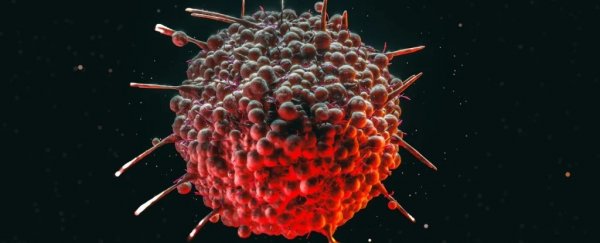A trial spanning more than 20 years and almost 1,000 participants worldwide has found an important result – people with a condition that gives them a higher chance of developing certain cancers can reduce the risk of some of those cancers by more than 60 percent, simply by adding more resistant starch to their diets.
In fact, the results were so compelling when it came to cutting the risk of upper gastrointestinal (GI) cancers specifically that the researchers are now looking to replicate them to ensure they're not missing anything.
"We found that resistant starch reduces a range of cancers by over 60 percent. The effect was most obvious in the upper part of the gut," says lead researcher and nutritionist John Mathers from Newcastle University in the UK.
Upper GI cancers include esophageal, gastric, and pancreatic cancers.
"The results are exciting, but the magnitude of the protective effect in the upper GI tract was unexpected, so further research is required to replicate these findings," adds one of the researchers, Tim Bishop, a genetic epidemiologist from the University of Leeds.
Resistant starch is a type of starch that passes through the small intestine and then ferments in the large intestine, where it feeds beneficial gut bacteria. It can be bought as a fiber-like supplement, and is naturally in a range of foods, including slightly green bananas, oats, cooked and cooled pasta and rice, peas, and beans.
The double-blind trial was carried out between 1999 and 2005 and involved a group of 918 people with a condition known as Lynch syndrome. Lynch syndrome is one of the most common genetic predispositions to cancer that we know of, with around one in 300 people estimated to carry an associated gene.
Those who've inherited Lynch syndrome genes have a significantly increased risk of developing colorectal cancer, as well as gastric, endometrial, ovarian, pancreatic, prostate, urinary tract, kidney, bile duct, small bowel, and brain cancers.
To figure out how they could reduce this risk, participants were randomly assigned to one of two groups, with 463 unknowingly given a daily 30 gram dose of resistant starch in powdered form for two years – roughly the equivalent of eating a not-quite-ripe banana daily.
Another 455 people with Lynch syndrome took a daily placebo that looked like powdered starch but didn't contain active ingredients.
The two groups were then followed up 10 years later. The results of this follow-up are what the researchers have just published.
In the follow-up period, there had only been 5 new cases of upper gastrointestinal (GI) cancers among the 463 people who'd taken the resistant starch. This is in comparison with 21 cases of upper GI cancer among the 455 people in the placebo group – a pretty remarkable reduction.
"This is important as cancers of the upper GI tract are difficult to diagnose and often are not caught early on," says Mathers.
However, there was one area where the resistant starch didn't make much difference – in the rate of bowel cancers.
Further work is needed to figure out exactly what's going on here, but the team has some ideas.
"We think that resistant starch may reduce cancer development by changing the bacterial metabolism of bile acids and to reduce those types of bile acids that can damage our DNA and eventually cause cancer," says Mathers.
"However, this needs further research."
To be clear, this trial was carried out on people already genetically predisposed to developing cancer and doesn't necessarily apply to the broader public. But there could be a lot to learn by better understanding how resistive starch can help protect against cancer.
The original trial was called the CAPP2 study, and the team are now carrying out a follow-up called CaPP3, involving more than 1,800 people with Lynch syndrome.
While it may sound concerning that the rate of colorectal cancers didn't seem affected by the resistive starch, don't worry, the study had good news on that front, too.
The original trial also looked at whether taking aspirin daily could reduce cancer risk. Back in 2020, the team published results showing that aspirin reduced the risk of large bowel cancers in Lynch syndrome patients by 50 percent.
"Patients with Lynch syndrome are high risk as they are more likely to develop cancers, so finding that aspirin can reduce the risk of large bowel cancers and resistant starch other cancers by half is vitally important," says Newcastle University geneticist Sir John Burns who ran the trial with Mathers.
"Based on our trial, NICE [the UK's National Institute for Health and Care Excellence] now recommend Aspirin for people at high genetic risk of cancer, the benefits are clear – aspirin and resistant starch work."
The research has been published in Cancer Prevention Research.
